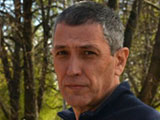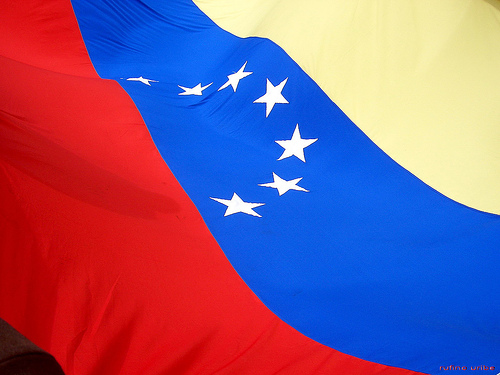Venezuela Express
by Israel Centeno / July 31, 2012 / No comments
Violence as a constant: From small-time Francophile tyrants to a state cartel.
Violence, according to romantic authors, is the expression of high spirits through transgression and a colossal lack of moderation; a hydra of multiform complexities. The cynic sets out to respond: War is another type of political system. Others put war within the framework of social contradictions; it is the midwife of new societies. And while ties could be established from social, anthropological, and psychological perspectives, the space of this column isn’t big enough to do so.

- From his lonely watch post Albert Camus asked who among us has not experienced exile yet still managed to preserve a spark of fire in their soul. “We’re all alone,” Natalia Sedova cried in exile on hearing of her husband Leon Trotsky’s affair with Frida Kahlo. In his novel Night Watch, Stephen Koch follows the incestuous love affair of David and Harriet, wealthy siblings watching the world from their solitary exile. Koch’s writing, Camus’s theories, and Trotsky’s affair all come back to exile and lead me to reflect on the human condition. From my own vantage point, my Night Watch, I will reflect on my questions of exile, writing, and the human condition.

- Israel Centeno was born in 1958 in Caracas, Venezuela, and currently lives in Pittsburgh as a Writer-in-Residence with City of Asylum/Pittsburgh. He writes both novels and short stories, and also works as an editor and professor of literature. He has published nine books in Venezuela and three in Spain.
Let’s take a look at my country. Venezuela is a cocktail of poverty, injustice, resentment, a rentier mentality, and clientelistic wealth.
At the beginning of the last century, after being the setting of an epic story—poor and ravaged by mounted rebels and small-time Francophile tyrants—Venezuela became a mining empire. During a long dictatorship, under which contracts were set up with transnational companies in order to exploit oil reserves, Venezuela tried to pave the way to modernity via its extraordinary resources. Until 1958 different forms of power alternated between “developmentalist” dictatorships and the first attempts at a democratic government with emphasis on social responsibility.
After 1958, and for the next forty years, a democracy was established. At the start, however, it was very unstable. The Cuban Revolution and Rafael Leónidas Trujillo’s Dominican dictatorship forced Venezuela to confront the political violence of the extreme left and right. In turn, the country became violent in order to defend its viability. Those years were characterized by prosperity, populism, the nationalization of natural resources, and dependence on the income from oil. But considerable social investment without a clear purpose, state paternalism, and failed attempts to diversify the economy and promote fair and sustainable welfare exhausted the political model. Nationalistic and military messianism was combined with a sycophantic discourse, and violence once more burst onto the scene.
Today the distorted institutions obey the vertical will of the president-commander. For instance, there was the time when Chávez spat in the face of judicial power by passing a sentence on Judge Afiuni through a radio and TV broadcast. Conversely, the country’s “revolutionary groups” summarily administer violent justice within their regions, creating states within the State.
Drug trafficking is a complex global issue. However the statements of two dissident judges who vanished into exile pose a thoughtful aside: The cartels do not penetrate the State or its authorities from below. On the contrary, the State, with its considerable money and power, is the cartel, alienating and monopolizing any Mafia initiatives through its people in the judicial system, the army, the police, and so on.
Hugo Chávez’s first electoral promise—to instill a powerful arms industry—serves as an illustration of this. In the last decade, agro-industry has been systematically destroyed, and the death toll resulting from violence has reached 18,500 victims in the last year alone. If it is true that the electoral promise tries to seduce voters, then the commander discovers his own electorate by promising to build unmanned planes and compete with Brazil in the manufacture of weaponry. His priority are those who have made violence and corruption a revolutionary way of “living” and doing business.
Translation: Kelly V. Harrison





